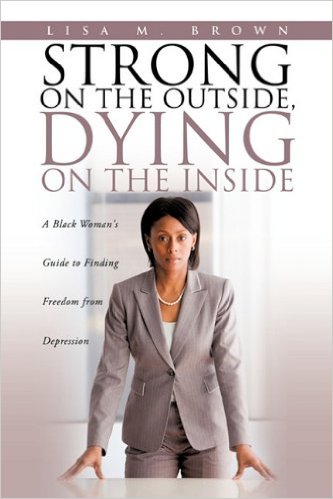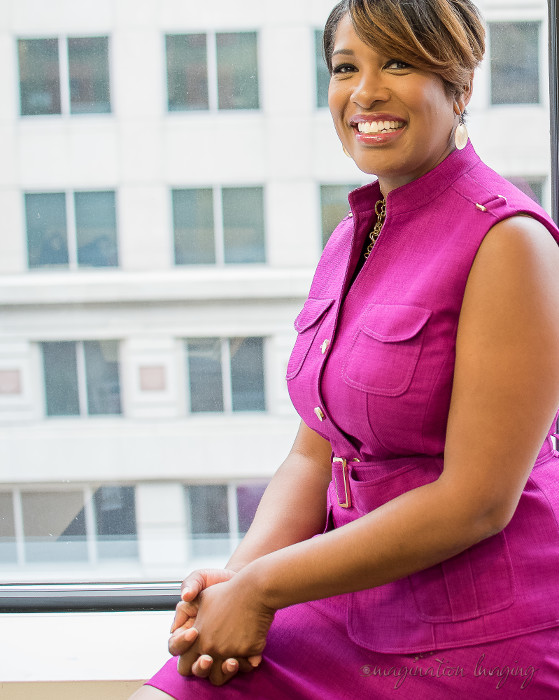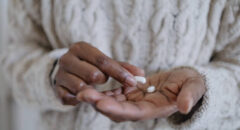 Behind the smiles, nice clothes, fancy job title and the seemingly got-it-all-together appearance, many Black women are barely holding on. We are dying on the inside, a sad reality Lisa Brown Alexander brings to light in her book Strong On the Outside, Dying On the Inside (Xulon Press). Brown Alexander, author and CEO of NonprofitHR, delves deep into the silent shame many Black women carry; a silence that echoed in her own life.
Behind the smiles, nice clothes, fancy job title and the seemingly got-it-all-together appearance, many Black women are barely holding on. We are dying on the inside, a sad reality Lisa Brown Alexander brings to light in her book Strong On the Outside, Dying On the Inside (Xulon Press). Brown Alexander, author and CEO of NonprofitHR, delves deep into the silent shame many Black women carry; a silence that echoed in her own life.
"I am a successful career woman who has battled with depression for five years. It was time to speak out openly about my struggle and share my healing journey with all women, particularly black women," said Brown Alexander.
According to the Center for Disease Control and Prevention (CDC), research reflects that only 15% of affected women seek help and treatment. "Many African American women do not get treatment because of a widespread belief that depression is evidence of personal weakness and not a legitimate health problem," stated Brown Alexander.
Her book, Strong On the Outside, Dying On the Inside, can be used as a resource and call to action for healing and combating the stigma of depression, which many Black women view as a lonely and debilitating disease.
Read on for an exclusive excerpt. To order, click here.
###
I’m A Strong Black Woman! I Got This.
Okay, so let’s deal with this strong Black woman thing. As Black women, we take great pride in our ability to bear the burdens of our children, families, communities and sometimes our entire race without stumbling or falling, no matter the weight that is pressed on us. After all, we endured the vicious passage from our ancestral homeland of Africa to the shores of America, the Caribbean and Europe; survived the horrors and brutality of slavery; persevered through segregation and discrimination; and achieved unprecedented economic, political and educational heights against all odds.
If you’re a Black, Christian women, you have the added blessing of an unwavering belief that God will hold us up on every leaning side regardless of the valleys and circumstances that we find ourselves in. As part of our Christian ethos, we’re taught from an early age that God will not give us more than we can bear. We’re taught to count it all joy when we encounter various trials, knowing that the testing of our faith produces endurance. I believe that. I really do. But that same belief can sometimes lead us to believe that depression and long periods of emptiness and sadness are necessary conditions of life to be endured and not overcome.
Part of the problem is also that, ironically, as strong Black women, many of us are not really in touch with what’s going on inside of us. We often look at women of other races with curiosity because they appear controlled, tight and restrained. Yet, ironically, in our attempts to be strong, we routinely suppress our need to show fear when we’re afraid, to show pain when we are hurting, to cry when we are sad, and to seek help when we are in need. And by not dealing with our hurt, pain and fear, we find ourselves in conflict with ourselves, and many times, solidly on the path to depression.
Why do we take on everyone else’s issues but never deal with our own? Because we’re strong Black women, right? That’s what we do. The truth is that “our external success belies our internal struggles. And being strong Black women often comes with a heavy price. We carry the burden of not showing our pain because we’ve been conditioned to think that pain and suffering are things to be endured.

We need to stop drinking our own Kool-Aid and feeding ourselves lies about what it means to be strong, Black and female. We’ve somehow bought into the myth that as Black women, we’re not supposed to break down or fall apart or show that we’re in pain and full of despair. We’ve bought into the myth that we need to be nurturing more than we need to be nurtured. We’ve fooled ourselves into believing that as long as we take care of our families and our careers, are active in our churches, and give back to our communities, we’ve arrived and we’re okay even when we know that we’re not. In reality, many of us find ourselves having lost our sense of self – for weeks, months and sometimes years – while caring for everything and everyone but ourselves.
So, strong Black woman, with all of your fortitude and determination, set it in your mind to deal with your depression. You’ve dealt with some major stuff and somehow you’ve been able to dig deep and find the strength to deal with life’s challenges. Now I want you to go back within yourself and find whatever strength you have to do just one thing: Tell yourself and tell God that you want to get better. That you need to get better first for you and then for those you love!
*edited exclusively for use by BlackDoctor.org









